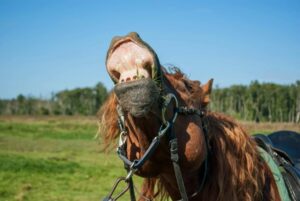
The origins of language have been a subject of fascination and intrigue for humans throughout history. How did language come into existence, and what conditions are necessary for a language to develop? These questions have perplexed scholars for centuries, with speculation dating back to ancient Greece. Early thinkers even pondered whether isolated children, growing up without exposure to human language, would naturally create their own form of communication. While the idea might seem far-fetched today, it received serious consideration in ancient times.
In the annals of language origins, early philosophers and scholars proposed various theories. Some believed that isolated children might default to an ancient or ancestral language. Depending on the time and location, languages such as Hebrew, Greek, Egyptian, or Sanskrit were suggested as possibilities. While these ideas may appear quaint now, they reflect the deep-rooted human curiosity about the origins of language.
One of the earliest accounts related to this curiosity comes from Herodotus, who described an experiment conducted by Psamtik I, the ruler of Egypt from 664-610 BCE. Psamtik reportedly placed two newborns in the care of a shepherd, instructing the shepherd to raise the children in complete isolation, with goats as a source of milk and no exposure to human speech.
The aim was to determine whether the children would eventually speak Egyptian or Phrygian, thus revealing which civilization was the “eldest of all men.” According to legend, when the children were presented to Psamtik, they extended their hands and cried out “becos,” the Phrygian word for bread. This was interpreted as evidence that the Phrygians held the linguistic seniority. While it’s unlikely that these events occurred precisely as described by Herodotus, they underscore humanity’s enduring curiosity about language origins.
Throughout history, there have been accounts of attempts to isolate children from linguistic input and observe the languages they would develop.
One such account, dating to the 13th century, was described by Brother Salimbene, a Franciscan friar. He detailed an experiment reportedly conducted by King Frederick II of Sicily, in which infants were placed under the care of foster-mothers and nurses instructed not to engage in speech. The goal was to discover whether the children would naturally acquire Hebrew, Greek, Latin, Arabic, or the language of their birth. However, the outcomes of these experiments are uncertain, and if conducted, they seemed to have yielded little success, as described by Brother Salimbene. The children could not thrive without clappings of the hands, gestures, and expressions of joy.
Other accounts describe even more extreme methods of isolation. King James IV of Scotland is said to have left two infants under the care of a mute nanny on the isolated island of Inchkeith.
Similarly, Akbar the Great, the Mogul emperor of India, reportedly confined a small group of children in the “Gang Mahal,” or “dumb house,” where any form of speech was forbidden. However, documentation of these early experiments is limited, raising questions about their authenticity and their ethical implications.
The Tragic Case of Language Deprivation
In modern times, deliberate isolation of infants for scientific purposes is considered ethically unacceptable. Nevertheless, “natural experiments,” often arising from unfortunate circumstances, have provided valuable insights into language development. One of the most well-known examples is the case of Genie, a child discovered at the age of 13 after spending nearly her entire life locked in a small room with minimal human interaction and virtually no exposure to speech.
When removed from this abusive environment, Genie did not speak. However, she quickly began imitating words and made remarkable progress in learning to speak and understand English within the first year. Nonetheless, she continued to face challenges in fully mastering English grammar, even many years later. Similar language difficulties have been observed in other children isolated from human contact for extended periods. These cases have been cited as supporting evidence for the Critical Period Hypothesis, which suggests that acquiring language becomes difficult or impossible after a certain age. However, it is challenging to disentangle the effects of extreme social isolation from the lack of linguistic input.
It is commonly believed that twins develop their own secret languages for communication.
While it’s true that twins often engage in speech that is unintelligible to others, including close family members, this “twin speak” does not strictly qualify as a language. In cases where the private speech of twins has been examined, the majority of vocabulary can be traced back to the languages the children have been exposed to, with variations in sounds and simplified grammar. Many children, not just twins, go through a phase where their speech is unintelligible to all except their closest family members. For twins, the difference is that they have a readily available partner at a similar stage of speech development. Additionally, twins frequently imitate each other’s speech, leading to a feedback loop that can result in speech that sounds like gibberish to outsiders.
One notable example is the case of Virginia and Grace Kennedy, also known as Poto and Cabengo in their private speech with each other. These girls had minimal contact outside their family and were not sent to school. In their early years, they primarily spoke in a unique style of speech that no one but them could understand. When they were eventually referred to speech therapy around the age of 6, it was discovered that their speech largely consisted of a mix of English and German (the two languages spoken in their household), with some invented words. The relative social isolation the girls experienced likely contributed to the development of their distinctive way of speaking.
The Critical Period Hypothesis proposes that there is a finite window during which individuals can acquire language effortlessly. The evidence from cases like Genie and others isolated from language input raises questions about whether language can be fully acquired if exposure is delayed beyond this critical period. However, in these cases, it is challenging to disentangle the effects of extreme social isolation from the absence of linguistic input.
While the historical experiments involving language deprivation were conducted in the pursuit of knowledge, they also raise significant ethical concerns. The welfare and well-being of the children involved were often neglected in these experiments. In contemporary times, ethical standards prevent such experiments from being conducted. Instead, researchers focus on studying cases of language development in natural, albeit unfortunate, contexts, such as those involving children raised in extreme isolation due to abandonment or abuse.
The quest to uncover the origins of language is a complex and multifaceted journey that spans centuries. From the ancient musings of philosophers to the questionable experiments of the past and the ethical considerations of today, our understanding of language development continues to evolve. While some mysteries remain, the enduring fascination with language origins reminds us of the profound importance of communication in the human experience.

In the realm of legal oddities, few questions baffle people as much as the idea…

In a world devoid of modern conveniences like computers and paper, how did our ancestors…

When Sultan bin Salman bin Abdulaziz Al Saud, a Royal Saudi Air Force pilot, ventured…

